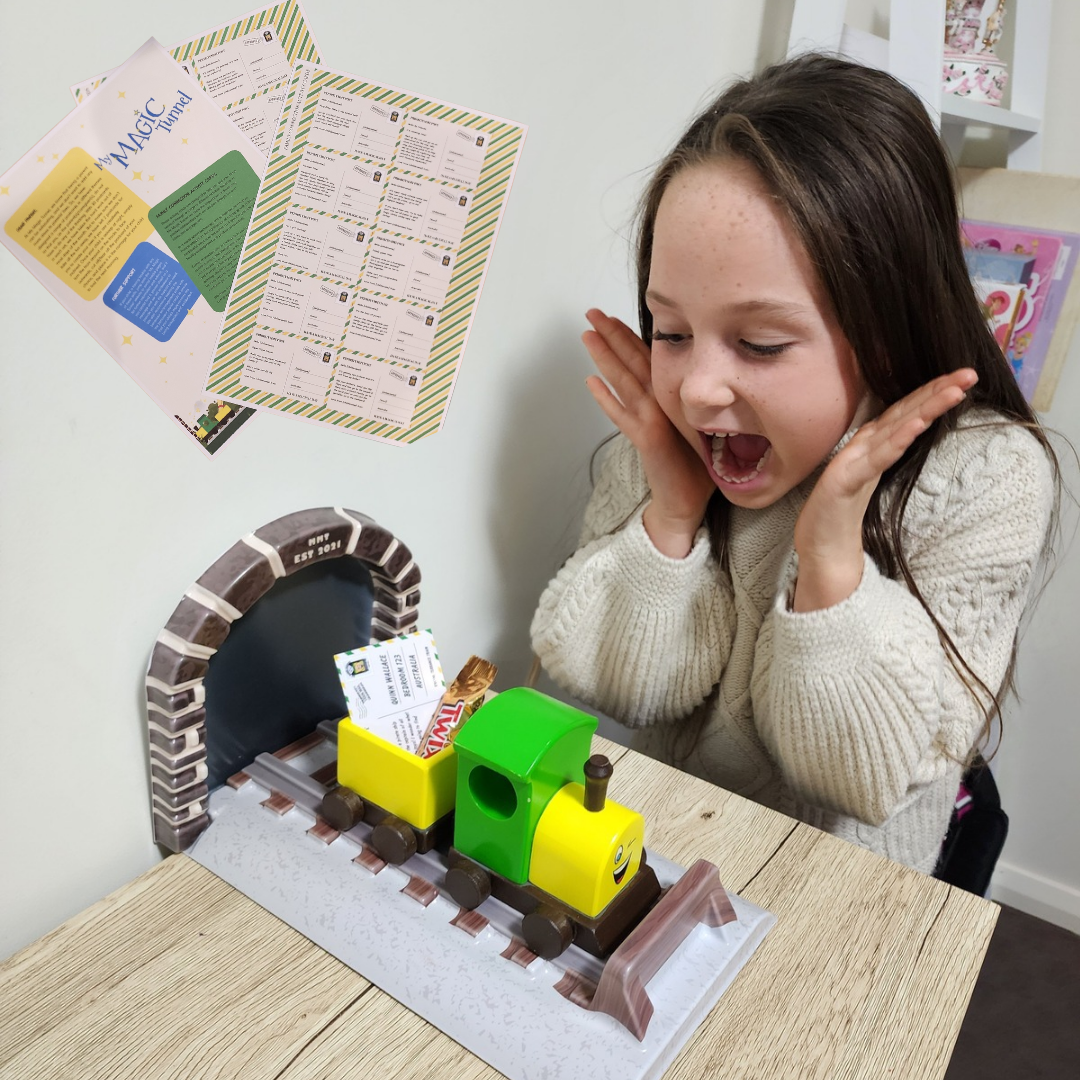
Unlocking the Magic: The Benefits of “My Magic Tunnel” Postcard Packs
“My Magic Tunnel” is more than just a toy—it’s a gateway to imaginative play, developmental growth, and meaningful family connections.

Emotional development is a crucial aspect of a child’s growth, laying the foundation for their well-being, relationships, and overall success in life. As caregivers, educators, and mentors, it’s our responsibility to create environments that foster emotional intelligence and resilience in children. In this blog, we’ll explore various ways to support and nurture the emotional development of children, helping them navigate the complexities of their feelings and relationships with confidence and empathy.
Encourage Emotional Expression: Children need to feel safe expressing their emotions without fear of judgment or dismissal. Encourage them to verbalize how they feel, whether it’s happiness, sadness, anger, or fear. Listen attentively and validate their emotions, letting them know it’s okay to feel what they feel.
Teach Emotional Literacy: Help children understand and label their emotions. Introduce them to a vocabulary of feelings, such as happy, sad, frustrated, excited, etc. Use books, games, and real-life scenarios to illustrate different emotions and their causes. This empowers children to articulate their inner experiences more effectively.
Model Healthy Emotional Regulation: Children learn by observing the adults around them. Model healthy ways to manage emotions, such as taking deep breaths to calm down when frustrated, or using “I” statements to express feelings constructively. By demonstrating emotional regulation, adults provide a roadmap for children to follow in managing their own feelings.
Apologise: Let’s face it, us adults also don’t have the best emotional maturity sometimes and well, shit happens! So when you loose your cool and react emotionally, don’t ignore it and move on. It is important to acknowledge your mistakes with your child and apologise for your emotional reactions with no ifs or buts. When we take accountability for our own emotions it teaches our child how to take accountability for their own and our relationship recovers more effectively.
Foster Empathy and Compassion: Empathy is the ability to understand and share the feelings of others, a fundamental skill for healthy relationships. Encourage children to consider the perspectives and emotions of their peers. Engage in activities that promote empathy, such as role-playing, storytelling, or volunteering together. Highlight the value of kindness and compassion in interactions with others.
Create a Supportive Environment: Cultivate an environment where children feel supported and valued. Establish routines, rituals, and spaces that promote emotional well-being, such as regular check-ins, cozy reading corners, or mindfulness activities. Encourage open communication and problem-solving, allowing children to express concerns or seek help when needed.
Foster Positive Relationships: Strong, nurturing relationships with caregivers, family members, peers, and mentors are essential for healthy emotional development. Encourage positive social interactions and teach conflict resolution skills. Provide opportunities for meaningful connections and collaborative activities that foster a sense of belonging and security.
Celebrate Emotional Growth: Recognize and celebrate milestones in emotional development. Acknowledge and praise children when they demonstrate resilience, empathy, or effective communication skills. Create a culture that values emotional growth as much as academic or physical achievements, reinforcing the importance of emotional intelligence in all aspects of life.
Supporting emotional development in children is an ongoing journey that requires patience, empathy, and intentionality. By creating nurturing environments, modeling healthy emotional behaviors, and providing opportunities for growth and connection, we equip children with the tools they need to navigate the complexities of their emotions and relationships with confidence and resilience. As caregivers and educators, we have the power to shape the emotional landscape of the next generation, fostering empathy, kindness, and emotional intelligence that will serve them well throughout their lives.


“My Magic Tunnel” is more than just a toy—it’s a gateway to imaginative play, developmental growth, and meaningful family connections.

In the journey of parenting, one of the most rewarding accomplishments is watching our children blossom into independent individuals. Independence